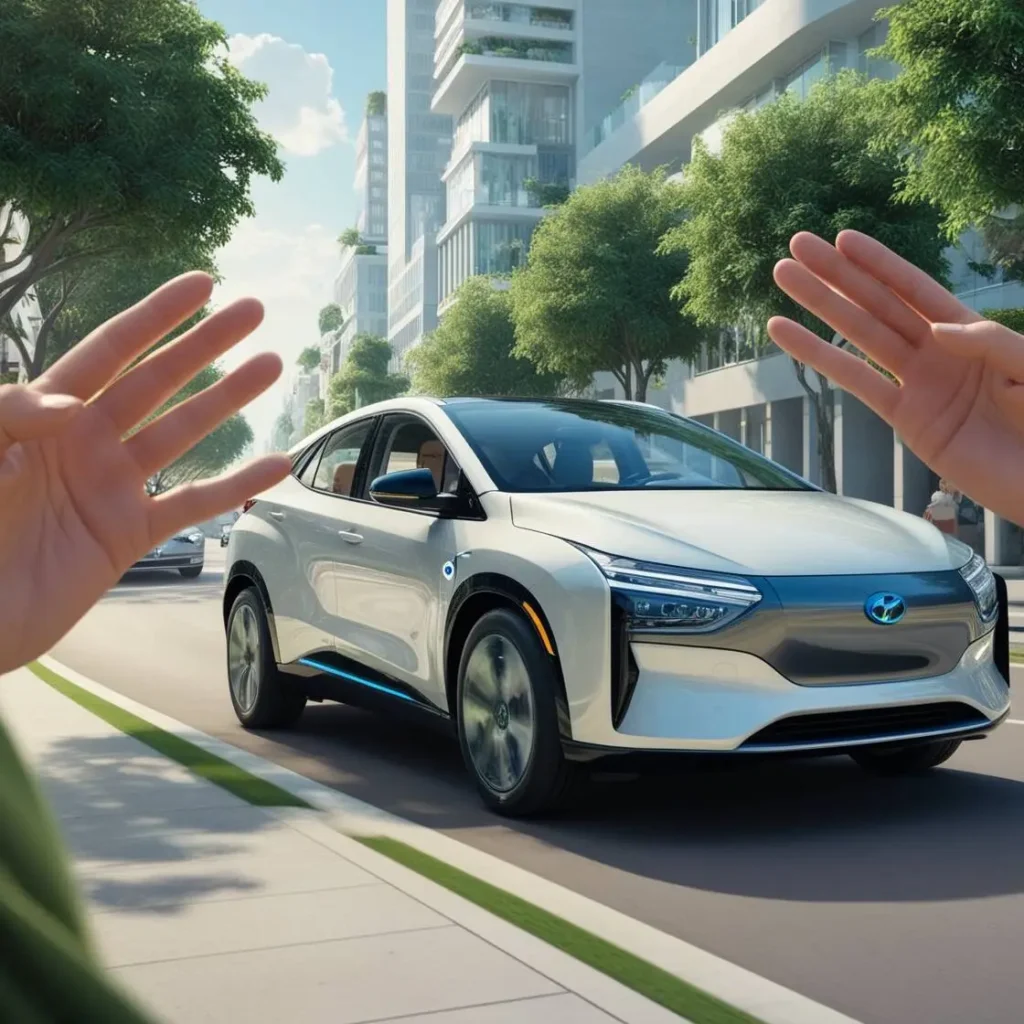Hybrid Vehicles: The Future of Sustainable Driving
Hybrid vehicles have become a significant focus in the automotive industry due to their ability to offer both environmental benefits and fuel efficiency. With growing concerns about climate change and a push toward greener technologies, many consumers are considering hybrid vehicles as a way to contribute to a more sustainable future. In this article, we will explore the fundamentals of hybrid vehicles, their benefits, potential drawbacks, and their role in shaping the future of transportation.

Index
What Are Hybrid Vehicles?
Hybrid vehicles combine two power sources: an internal combustion engine and an electric motor. Unlike traditional vehicles, which rely solely on gasoline, hybrid vehicles switch between or combine these two systems for optimal efficiency. This dual-source setup allows for better fuel economy and lower emissions, as the electric motor can power the car at low speeds, while the gasoline engine kicks in during more demanding driving conditions.
One of the key aspects of hybrid vehicles is their regenerative braking system, which captures energy typically lost during braking and converts it into electricity to recharge the car’s battery. This system contributes to the vehicle’s overall energy efficiency, reducing the need to refuel as frequently as with standard cars.
Benefits of Hybrid Vehicles
- Fuel Efficiency
One of the primary advantages of hybrid cars is their impressive fuel economy. By using an electric motor alongside a gasoline engine, hybrid cars can travel farther on less fuel. This is particularly beneficial for those who drive in stop-and-go traffic, where electric motors can shine. - Reduced Carbon Emissions
Hybrid cars produce fewer carbon emissions compared to traditional gasoline-powered vehicles. Since the electric motor powers the vehicle during low-speed travel, it reduces the overall reliance on fossil fuels and helps lower the vehicle’s environmental impact. - Cost Savings
While the initial purchase price of a hybrid car can be higher than a conventional car, drivers can save money in the long run due to reduced fuel consumption and lower maintenance costs. Hybrid vehicles are often subject to government incentives, making them more financially appealing to environmentally conscious consumers. - Quiet Operation
Hybrid cars are notably quieter than traditional gasoline vehicles, especially at low speeds when the car is running solely on electric power. This not only makes for a more pleasant driving experience but also reduces noise pollution.
Drawbacks of Hybrid Vehicles
- Higher Upfront Cost
One of the main downsides of hybrid cars is the higher purchase price. While government incentives can help offset some of the costs, hybrid technology is generally more expensive due to the combination of two power systems and advanced batteries. - Battery Life and Replacement Costs
While hybrid car batteries are designed to last a long time, they will eventually need to be replaced, which can be costly. Hybrid batteries are typically more expensive than conventional car batteries, making replacement an expensive prospect. - Performance Trade-offs
Hybrid cars tend to have lower performance levels compared to gasoline-powered vehicles. The focus on fuel efficiency can result in less powerful acceleration and overall performance, which may not appeal to drivers seeking high-speed or more aggressive driving styles. - Complex Maintenance
The complexity of hybrid systems means that repairs and maintenance can be more challenging and expensive. Hybrid cars have both an electric motor and a gasoline engine, meaning more components need to be maintained, and not all mechanics are equipped to service them.
Hybrid Vehicles vs. Gasoline Vehicles
When comparing hybrid cars to traditional gasoline vehicles, the most notable difference lies in fuel efficiency. Hybrids combine an internal combustion engine with an electric motor, which allows them to consume less fuel, especially during city driving. Gasoline vehicles, on the other hand, rely solely on an internal combustion engine, which tends to burn more fuel. While gasoline cars typically offer higher horsepower and better performance for long-distance highway driving, hybrid cars excel in stop-and-go traffic, where their electric motor reduces fuel consumption.
However, gasoline cars are often cheaper upfront than hybrids, making them more accessible for those on a budget. That said, the long-term fuel savings with hybrid cars can often outweigh the initial cost difference.
Hybrid Vehicles vs. Diesel Vehicles
Diesel vehicles are known for their fuel efficiency, particularly in long-distance driving, and they often offer more torque, making them ideal for towing and heavy loads. However, hybrid cars have the advantage when it comes to urban driving, where frequent stops can allow the electric motor to take over, saving fuel. Diesel engines can be more expensive to maintain due to the cost of diesel fuel and specific engine maintenance requirements, whereas hybrid ones generally have fewer mechanical components to maintain, especially in terms of the electric motor.
From an environmental perspective, hybrid ones tend to produce fewer emissions than diesel cars, which are often scrutinized for their higher nitrogen oxide output. For city dwellers looking for an eco-friendly option with good mileage, hybrid cars may be the better choice.
Hybrid vs. Gas-Powered Vehicles
Gas-powered vehicles are often considered less environmentally friendly compared to hybrid vehicles. While hybrids benefit from an electric motor that can reduce fuel consumption and emissions during certain driving conditions, gas-powered vehicles rely fully on gasoline combustion, which results in higher carbon emissions. Additionally, hybrid vehicles generally have better fuel efficiency in urban environments due to regenerative braking and the ability to switch between electric and gas power.
However, gas-powered vehicles often have lower upfront costs and are widely available across a range of models. Drivers who do not prioritize fuel efficiency or environmental impact may still opt for traditional gas-powered vehicles for their simplicity and lower maintenance costs compared to hybrid systems.
Hybrid Vehicles vs. Electric Vehicle
Electric vehicles (EVs) are the ultimate in eco-friendly transportation, emitting zero tailpipe emissions, as they rely solely on electric power. In contrast, hybrid vehicles still produce some emissions because they use an internal combustion engine in combination with an electric motor. When it comes to fuel efficiency, electric vehicles are generally more efficient than hybrids since they don’t require gasoline at all.
One of the key differences between the two is range. Hybrid cars typically have a longer range because they can switch to gasoline when the electric charge runs out. EVs, on the other hand, are limited by battery capacity and the availability of charging infrastructure. For people who do a lot of long-distance driving or live in areas with limited access to charging stations, hybrids can be a more convenient option.
In terms of cost, EVs tend to be more expensive upfront than hybrid cars, but government incentives and the lack of fuel costs can make EVs an appealing choice in the long run.
The Evolution of Hybrid Car Technology
Since the introduction of the Toyota Prius in the late 1990s, hybrid car technology has evolved significantly. Early hybrid models focused primarily on fuel efficiency, but today’s hybrids come equipped with advanced technology that enhances both performance and convenience. Many automakers are now incorporating features like plug-in hybrid options, which allow drivers to recharge their vehicles at home for even greater fuel savings.
The continuous development of hybrid technologies means that consumers now have a wider range of options, from compact cars to SUVs, and even luxury vehicles. These advancements are making hybrid cars more appealing to a broader audience, helping to drive their adoption in the automotive market.
Are Hybrid Cars the Future of Driving?
The future of transportation is undoubtedly shifting toward greener technologies, and hybrid cars will likely continue to play a major role in this transition. While electric vehicles (EVs) are becoming more popular, hybrids offer a practical solution for drivers who want the benefits of both electric and gasoline-powered engines.
As governments around the world introduce stricter emission standards, hybrid cars are expected to remain a key player in the automotive industry. With advancements in battery technology and renewable energy, hybrid cars are set to become even more efficient and environmentally friendly in the coming years.
Conclusion
Hybrid cars provide a unique blend of fuel efficiency, reduced emissions, and convenience. They offer drivers the opportunity to save on fuel costs while also contributing to a greener planet. As the automotive industry continues to evolve and embrace more sustainable technologies, hybrid vehicles are likely to remain a popular choice for environmentally conscious consumers.
If you’re considering making the switch to a hybrid car, now is a great time to explore your options. With a wide range of models available, there’s likely a hybrid vehicle that fits your needs and lifestyle. Keep in mind that while hybrid cars come with their own set of pros and cons, their benefits often outweigh the potential drawbacks for many drivers.
Liked the article about hybrid vehicles and want to read more treands? Click here and keep reading
